|
시장보고서
상품코드
1825293
곤충 퇴치제 시장 : 예측(2025-2030년)Insect Repellent Market - Forecasts from 2025 to 2030 |
||||||
곤충 퇴치제 시장은 CAGR 5.54%로, 2025년 73억 4,600만 달러에서 2030년에는 96억 1,900만 달러로 성장할 것으로 예측됩니다.
뎅기열, 말라리아, 치쿤구니야, 지카 바이러스, 황열병 등 매개체 질환의 유행 증가에 힘입어 세계 곤충 퇴치제 시장은 큰 성장이 예상됩니다. 전 세계적으로 건강에 대한 관심이 높아지고, 정부 주도의 노력과 질병 퇴치를 위한 막대한 투자가 곤충 퇴치제 솔루션에 대한 수요를 촉진하고 있습니다. 특히 질병 발생률이 높은 지역에서는 곤충이 매개하는 질병에 대한 예방 조치의 필요성에 대한 소비자의 인식이 높아진 것도 시장을 견인하고 있습니다. 인터넷 보급률 증가와 전자상거래에 대한 소비자의 선호로 인한 온라인 판매 채널의 확대도 주요 성장 요인입니다. 그러나 일부 지역에서의 낮은 인지도, 고도의 기피제 제제의 높은 비용 등이 시장 확대의 제약요인으로 작용할 수 있습니다.
시장 성장 촉진요인
질병 위협 증가와 정부의 이니셔티브
곤충 매개 질병의 발생률 증가는 곤충 퇴치제 시장의 주요 촉진요인입니다. 이러한 질병은 특히 5세 미만의 어린이 등 사회적 약자에게 심각한 공중보건 위험을 초래하기 때문에 보호 솔루션에 대한 수요가 증가하고 있습니다. 정부의 이니셔티브는 질병의 확산을 억제하고 인식을 높이는 데 중요한 역할을 하고 있습니다. 예를 들어, 세계보건기구(WHO)는 2030년까지 이환율과 사망률을 90% 감소시키는 것을 목표로 2021년에 세계 말라리아 전략을 업데이트하는 등 말라리아 퇴치 전략을 시행하고 있습니다. 이러한 노력과 질병 대책에 대한 자금 증가가 맞물려 중요한 예방 수단으로 곤충 퇴치제 채택을 촉진하고 있습니다.
온라인 판매 채널의 성장
온라인 판매 분야는 특히 인도, 중국 등 신흥 경제국에서 유통 채널의 확대와 인터넷 보급률 상승에 힘입어 유망한 성장세를 보이고 있습니다. 소비자들은 방충제 제품에 대한 편리한 접근을 위해 전자상거래 플랫폼을 점점 더 많이 이용하고 있으며, 이러한 제품들이 온라인에서 점점 더 많이 판매되고 있는 것도 이러한 추세에 힘을 실어주고 있습니다. 경쟁력 있는 가격과 쉬운 접근성을 바탕으로 한 온라인 구매에 대한 선호는 특히 디지털 인프라가 구축되고 있는 지역에서 시장 확대에 큰 기여를 하고 있습니다.
지역별 전망
북미
북미는 방충제 시장에서 큰 비중을 차지하고 있으며, 소비자 인지도가 높고 유통망이 잘 구축되어 있는 것이 그 요인으로 작용하고 있습니다. 이 지역은 적극적인 건강 캠페인과 첨단 기피 제품 접근성 등의 혜택을 누리고 있으며, 이는 시장의 꾸준한 성장을 뒷받침하고 있습니다.
아시아태평양
아시아태평양, 특히 인도, 인도네시아, 태국 등의 국가에서는 매개체 질환의 높은 유행과 정부의 적극적인 노력으로 인해 시장이 급성장하고 있습니다. 인도에서는 뎅기열과 같은 질병이 급증하면서 방충제에 대한 수요가 증가하고 있습니다. 기후 변화와 불충분한 예방 대책이 질병의 확산을 악화시키고 있기 때문입니다. 이러한 요인은 소비자의 의식 향상과 함께 이 지역 시장 수요를 증가시키고 있습니다.
곤충 퇴치제 시장은 벡터 매개 질환의 위협 증가와 WHO의 세계 말라리아 전략과 같은 정부 지원책에 힘입어 강력한 성장이 예상됩니다. 아시아태평양, 특히 인도는 질병 확산률이 높고 소비자 인식이 높아지면서 주요 성장 거점이 되고 있습니다. 인터넷의 보급과 전자상거래의 확산에 힘입은 온라인 판매 채널의 확대는 시장 성장을 더욱 가속화할 것입니다. 비용과 인식의 격차 등의 과제는 여전히 남아있지만, 세계 건강 우선순위와 디지털 트렌드에 따라 시장은 지속적으로 확대될 것으로 예상되며, 제조업체에게는 기술 혁신과 수요 증가의 기회를 제공합니다.
본 보고서의 주요 장점
- 통찰력 있는 분석 : 고객 부문, 정부 정책 및 사회경제적 요인, 소비자 선호도, 산업별, 기타 하위 부문에 초점을 맞추고 주요 지역뿐만 아니라 신흥 지역까지 포괄하는 상세한 시장 인사이트를 얻을 수 있습니다.
- 경쟁 구도: 세계 주요 기업들이 채택하고 있는 전략적 전략을 이해하고, 적절한 전략을 통한 시장 침투 가능성을 파악할 수 있습니다.
- 시장 성장 촉진요인과 미래 동향 : 역동적인 요인과 매우 중요한 시장 동향, 그리고 이들이 향후 시장 발전을 어떻게 형성할 것인지에 대해 알아봅니다.
- 실행 가능한 제안: 역동적인 환경 속에서 새로운 비즈니스 스트림과 수익을 발굴하기 위한 전략적 의사결정에 통찰력을 활용합니다.
- 다양한 사용자에 대응: 스타트업, 연구기관, 컨설턴트, 중소기업, 대기업에 유익하고 비용 효율적임.
어떤 용도로 사용되는가?
산업 및 시장 인사이트, 사업 기회 평가, 제품 수요 예측, 시장 진출 전략, 지리적 확장, 설비 투자 결정, 규제 프레임워크와 영향, 신제품 개발, 경쟁의 영향
분석 범위
- 과거 데이터(2022-2024년) 및 예측 데이터(2025-2030년)
- 성장 기회, 과제, 공급망 전망, 규제 프레임워크, 고객 행동, 트렌드 분석
- 경쟁사 포지셔닝, 전략 및 시장 점유율 분석
- 매출 성장률 및 예측 분석 : 부문별/지역별(국가별)
- 기업 프로파일링(전략, 제품, 재무정보, 주요 동향 등)
목차
제1장 주요 요약
제2장 시장 현황
- 시장 개요
- 시장의 정의
- 분석 범위
- 시장 구분
제3장 비즈니스 상황
- 시장 성장 촉진요인
- 시장 성장 억제요인
- 시장 기회
- Porter의 Five Forces 분석
- 업계 밸류체인 분석
- 정책 및 규제
- 전략적 제안
제4장 기술 전망
제5장 곤충 퇴치제 시장 : 곤충 유형별
- 서론
- 모기
- 벌레
- 기타
제6장 곤충 퇴치제 시장 : 제품 유형별
- 서론
- 에어로졸
- 코일
- 크림 및 로션
- 분무기
- 패치
- 기타
제7장 곤충 퇴치제 시장 : 유효 성분별
- 서론
- 합성
- 천연
제8장 곤충 퇴치제 시장 : 용도별
- 서론
- 인간
- 반려동물
제9장 곤충 퇴치제 시장 : 판매채널별
- 서론
- 온라인
- 오프라인
제10장 곤충 퇴치제 시장 : 지역별
- 서론
- 북미
- 미국
- 캐나다
- 멕시코
- 남미
- 브라질
- 아르헨티나
- 기타
- 유럽
- 독일
- 프랑스
- 영국
- 스페인
- 기타
- 중동 및 아프리카
- 사우디아라비아
- 아랍에미리트(UAE)
- 기타
- 아시아태평양
- 중국
- 인도
- 일본
- 한국
- 인도네시아
- 태국
- 기타
제11장 경쟁 환경과 분석
- 주요 기업과 전략 분석
- 시장 점유율 분석
- 인수합병(M&A), 합의 및 협업
- 경쟁 대시보드
제12장 기업 개요
- Reckitt Benckiser Group plc
- Sawyer Products, Inc.
- GODREJ LTD.
- Dabur Odomos
- Spectrum Brands, Inc.
- Enesis Group
- S. C. Johnson & Son, Inc.
- PIC
- Quantum Health
- Newell Brands
제13장 부록
- 통화
- 전제조건
- 기준연도와 예측연도 타임라인
- 이해관계자의 주요 이점
- 조사 방법
- 약어
The insect repellent market is expected to grow from USD 7.346 billion in 2025 to USD 9.619 billion in 2030, at a CAGR of 5.54%.
The global insect repellent market is poised for significant growth, driven by the rising prevalence of vector-borne diseases such as dengue, malaria, chikungunya, Zika virus, and yellow fever. Increasing global health concerns, coupled with government-led initiatives and substantial investments in disease control, are fueling demand for insect repellent solutions. The market is further supported by growing consumer awareness of the need for preventive measures against insect-borne diseases, particularly in regions with high disease incidence. The expansion of online sales channels, facilitated by increased internet penetration and consumer preference for e-commerce, is also a key growth factor. However, challenges such as limited awareness in some regions and the high cost of advanced repellent formulations may pose constraints to market expansion.
Market Drivers
Rising Threat of Diseases and Government Initiatives
The escalating incidence of insect-borne diseases is a primary driver of the insect repellent market. These diseases pose significant public health risks, particularly to vulnerable populations such as children under five, prompting heightened demand for protective solutions. Government initiatives are playing a crucial role in curbing disease spread and raising awareness. For instance, the World Health Organization (WHO) has implemented strategies to combat malaria, including updated global malaria strategies in 2021 aimed at reducing incidence and mortality rates by 90% by 2030. Such efforts, combined with increased funding for disease control, are driving the adoption of insect repellents as a critical preventive measure.
Growth in Online Sales Channels
The online sales segment is witnessing promising growth, fueled by expanding distribution channels and rising internet penetration, particularly in developing economies like India and China. Consumers are increasingly turning to e-commerce platforms for convenient access to insect repellent products, supported by the growing availability of these products online. The inclination toward online purchasing, driven by competitive pricing and ease of access, is significantly contributing to market expansion, especially in regions with improving digital infrastructure.
Geographical Outlook
North America
North America holds a significant share of the insect repellent market, driven by robust consumer awareness and established distribution networks. The region benefits from proactive health campaigns and access to advanced repellent products, supporting steady market growth.
Asia Pacific
The Asia Pacific region, particularly countries like India, Indonesia, and Thailand, is experiencing rapid market growth due to the high prevalence of vector-borne diseases and proactive government initiatives. In India, the surge in diseases like dengue has heightened demand for insect repellents, as climatic fluctuations and inadequate preventive measures exacerbate disease spread. These factors, combined with growing consumer awareness, are propelling market demand in the region.
The insect repellent market is set for robust growth, driven by the increasing threat of vector-borne diseases and supportive government initiatives, such as WHO's global malaria strategies. The Asia Pacific region, particularly India, is a key growth hub due to high disease prevalence and rising consumer awareness. The expansion of online sales channels, fueled by growing internet penetration and e-commerce adoption, further accelerates market growth. While challenges like cost and awareness gaps persist, the market's alignment with global health priorities and digital trends positions it for sustained expansion, offering opportunities for manufacturers to innovate and capture growing demand.
Key Benefits of this Report:
- Insightful Analysis: Gain detailed market insights covering major as well as emerging geographical regions, focusing on customer segments, government policies and socio-economic factors, consumer preferences, industry verticals, and other sub-segments.
- Competitive Landscape: Understand the strategic maneuvers employed by key players globally to understand possible market penetration with the correct strategy.
- Market Drivers & Future Trends: Explore the dynamic factors and pivotal market trends and how they will shape future market developments.
- Actionable Recommendations: Utilize the insights to exercise strategic decisions to uncover new business streams and revenues in a dynamic environment.
- Caters to a Wide Audience: Beneficial and cost-effective for startups, research institutions, consultants, SMEs, and large enterprises.
What do businesses use our reports for?
Industry and Market Insights, Opportunity Assessment, Product Demand Forecasting, Market Entry Strategy, Geographical Expansion, Capital Investment Decisions, Regulatory Framework & Implications, New Product Development, Competitive Intelligence
Report Coverage:
- Historical data from 2022 to 2024 & forecast data from 2025 to 2030
- Growth Opportunities, Challenges, Supply Chain Outlook, Regulatory Framework, and Trend Analysis
- Competitive Positioning, Strategies, and Market Share Analysis
- Revenue Growth and Forecast Assessment of segments and regions including countries
- Company Profiling (Strategies, Products, Financial Information, and Key Developments among others.
Segmentation:
By Insect Type
- Mosquito
- Bugs
- Others
By Product Type
- Aerosol
- Coil
- Creams and Lotions
- Vaporizers
- Patch
- Others
By Active Ingredient
- Synthetic
- Natural
By Application
- Humans
- Pets
By Sales Channel
- Online
- Offline
By Geography
- North America
- USA
- Canada
- Mexico
- South America
- Brazil
- Argentina
- Others
- Europe
- Germany
- France
- United Kingdom
- Spain
- Others
- Middle East and Africa
- Saudi Arabia
- UAE
- Others
- Asia Pacific
- China
- India
- Japan
- South Korea
- Indonesia
- Thailand
- Others
TABLE OF CONTENTS
1. EXECUTIVE SUMMARY
2. MARKET SNAPSHOT
- 2.1. Market Overview
- 2.2. Market Definition
- 2.3. Scope of the Study
- 2.4. Market Segmentation
3. BUSINESS LANDSCAPE
- 3.1. Market Drivers
- 3.2. Market Restraints
- 3.3. Market Opportunities
- 3.4. Porter's Five Forces Analysis
- 3.5. Industry Value Chain Analysis
- 3.6. Policies and Regulations
- 3.7. Strategic Recommendations
4. TECHNOLOGICAL OUTLOOK
5. INSECT REPELLANT MARKET BY INSECT TYPE
- 5.1. Introduction
- 5.2. Mosquito
- 5.3. Bugs
- 5.4. Others
6. INSECT REPELLANT MARKET BY PRODUCT TYPE
- 6.1. Introduction
- 6.2. Aerosol
- 6.3. Coil
- 6.4. Creams and Lotions
- 6.5. Vaporizers
- 6.6. Patch
- 6.7. Others
7. INSECT REPELLANT MARKET BY ACTIVE INGREDIENT
- 7.1. Introduction
- 7.2. Synthetic
- 7.3. Natural
8. INSECT REPELLANT MARKET BY APPLICATION
- 8.1. Introduction
- 8.2. Humans
- 8.3. Pets
9. INSECT REPELLANT MARKET BY SALES CHANNEL
- 9.1. Introduction
- 9.2. Online
- 9.3. Offline
10. INSECT REPELLANT MARKET BY GEOGRAPHY
- 10.1. Introduction
- 10.2. North America
- 10.2.1. USA
- 10.2.2. Canada
- 10.2.3. Mexico
- 10.3. South America
- 10.3.1. Brazil
- 10.3.2. Argentina
- 10.3.3. Others
- 10.4. Europe
- 10.4.1. Germany
- 10.4.2. France
- 10.4.3. United Kingdom
- 10.4.4. Spain
- 10.4.5. Others
- 10.5. Middle East and Africa
- 10.5.1. Saudi Arabia
- 10.5.2. UAE
- 10.5.3. Others
- 10.6. Asia Pacific
- 10.6.1. China
- 10.6.2. India
- 10.6.3. Japan
- 10.6.4. South Korea
- 10.6.5. Indonesia
- 10.6.6. Thailand
- 10.6.7. Others
11. COMPETITIVE ENVIRONMENT AND ANALYSIS
- 11.1. Major Players and Strategy Analysis
- 11.2. Market Share Analysis
- 11.3. Mergers, Acquisitions, Agreements, and Collaborations
- 11.4. Competitive Dashboard
12. COMPANY PROFILES
- 12.1. Reckitt Benckiser Group plc
- 12.2. Sawyer Products, Inc.
- 12.3. GODREJ LTD.
- 12.4. Dabur Odomos
- 12.5. Spectrum Brands, Inc.
- 12.6. Enesis Group
- 12.7. S. C. Johnson & Son, Inc.
- 12.8. PIC
- 12.9. Quantum Health
- 12.10. Newell Brands
13. APPENDIX
- 13.1. Currency
- 13.2. Assumptions
- 13.3. Base and Forecast Years Timeline
- 13.4. Key benefits for the stakeholders
- 13.5. Research Methodology
- 13.6. Abbreviations



















